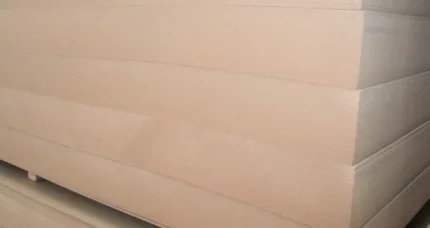
In 2023, European MDF production and sales were significantly down on the highs seen in 2021 and statistically in 2022 fell by 9.3%. New figures from the European Panel Federation show MDF production down by -11% in 2023.
Across the EU and the UK, the impacts of the Russia/Ukraine conflict, including Belarus continued to be seen. Rapidly rising energy costs plus associated issues around the export embargoes of key consumables were felt, which translated also into higher product costs and falling consumer confidence and spending.
The outlook for 2024 is still subdued, although some are suggesting we are nearing the bottom of the dip, with some possible growth potential in the latter stages of 2024 and into 2025, depending on individual country and market situations.
With MDF being one of the more energy intensive products to manufacture, there has been reduced output, with energy costs and reduced consumption weighing on producers.
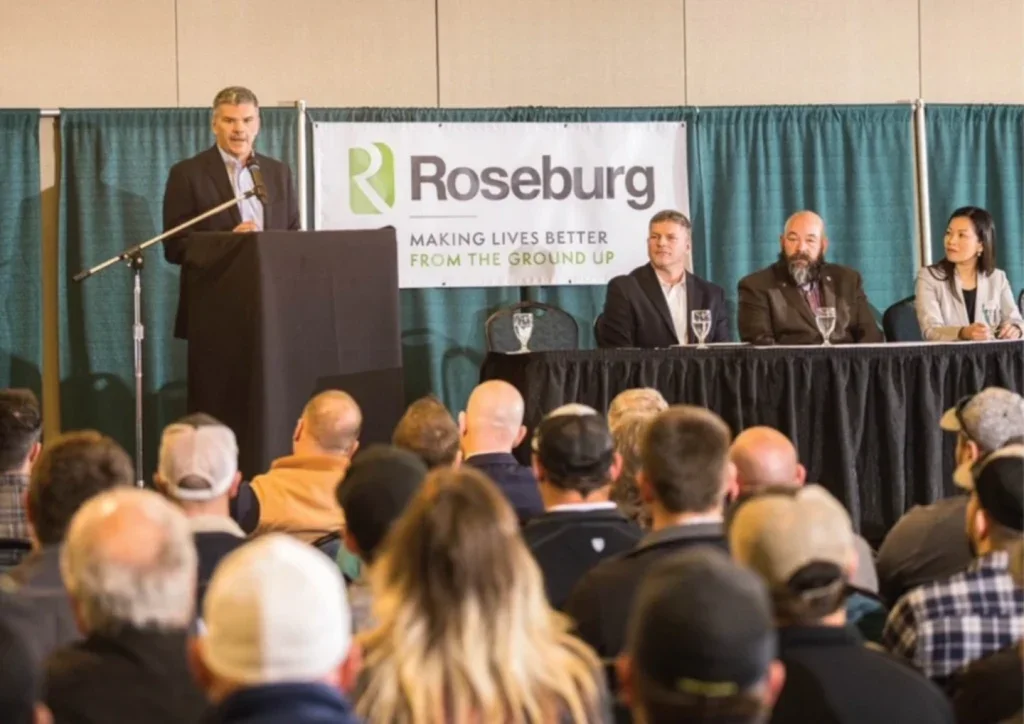
Global stocks were already in bear market territory. What the Russia/Ukraine conflict did particularly for Europe, was to exacerbate and speed up the decline.
News of upcoming new European MDF mills is listed in Table 1. Still included are the major investments by Yildiz Entegre of Turkey overseas in Vladimir, Russia; the Homanit replacement MDF project in Germany; and the new Kronospan plant planned for Slovakia.
In Turkey the investment by Starwood at Inegöl, with 600,000m3, plus Kastamonu Balikesir with 500,000m3 and the Homanit project in Lithuania (310,000m3) have all started production and so have moved across to the main listings.
The planned Slovakian Kronospan MDF mill in Zvolen with an anticipated capacity of 450,000m3 remains on the drawing board. Kronospan filed an application with the Slovakian Ministry of Environment for an environmental impact assessment for an MDF mill planned in Zvolen back at the start of 2021 and according to the submitted paperwork, the new mill is to make MDF 6-38mm thick. Work to build the mill is to commence within two years of receipt of the required permits, and news is still awaited. It will then take another 18 months for commissioning to take place.
In the US and building on last year’s report, the CalPlant 1 (Eureka MDF) project rice straw-based MDF plant in California became a production reality, albeit slowly, with an initial start-up in 2020 but subsequently since filed for bankruptcy and more latterly in May 2023 then went into a process of closure and liquidation. It remains to be seen what the future will hold for the site and the installed machinery. Accordingly, we have removed this facility from the main listing.
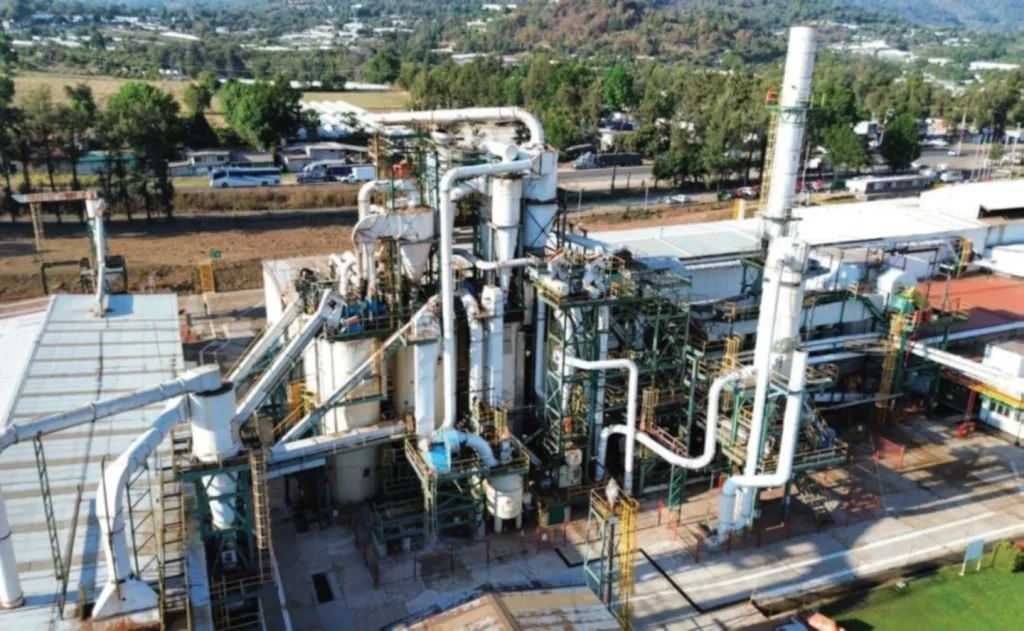
In contrast, the positive news in the US remains the announcement from last year by Roseburg Forest Products to invest US$700m to upgrade and expand its manufacturing operations in southern Oregon.
In Mexico, the positive capacity developments outlined previously have progressed well.
The South America-based wood-based panel giant Arauco is running the former Masisa’s MDF facility in Durango and announced in November 2021 a US$200m MDF project in Zitácuaro (Michoacán) to double its capacity, due to start up in 2025. Proteak Uno (Pro MDF) has been renamed Technotable, in Huimanguillo.
This year’s survey once again provides listings of design capacity in the two regions as at the end of 2023. We also show the changes to capacity expected during 2024 and beyond.
Total all-European installed capacity reached an estimated 31,575,800m3 in 2023 compared to 30,021,800m3 in 2022, 29,526,800m3 in 2021 and 28,931,800m3 in 2020.
This survey continues to be published in two parts; the second part will deal with the rest of the world outside Europe and North America and will be published in the August/ September 2024 issue of WBPI.
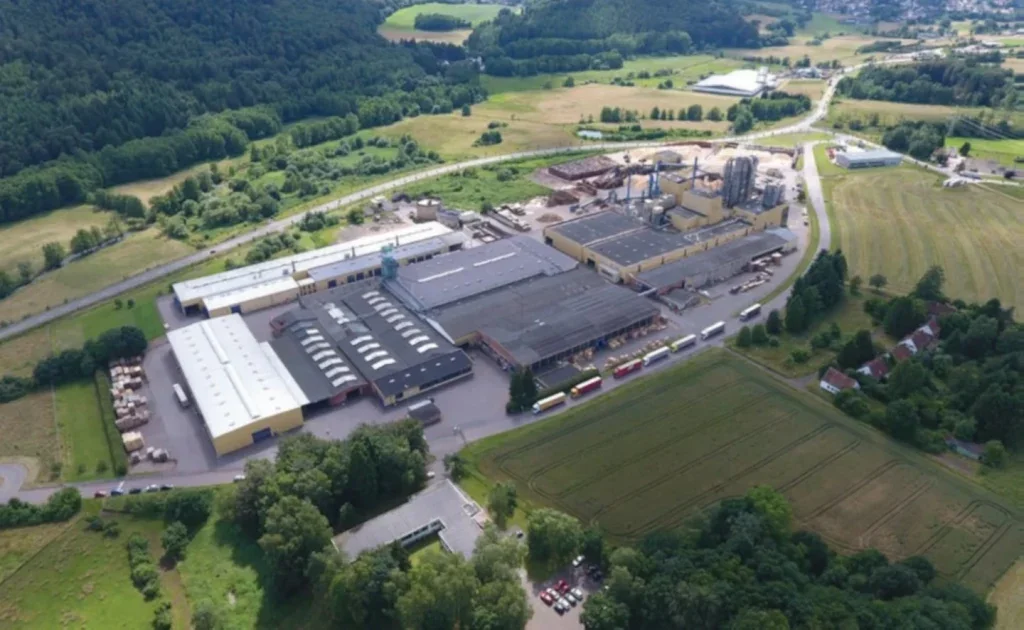
The author and the editor of WBPI remain grateful to all those organisations and manufacturers as well as other industry professionals, who made valued contributions to this report. We are always pleased to receive new information regarding design capacity changes at any time during the year.
EUROPEAN CAPACITY
Ongoing investments in Turkey have continued. Starwood commissioned Dieffenbacher to supply an MDF line in Inegöl, Turkey, that includes a 9ft x 63.5m CPS+ press, the largest continuous woodbased panel press in Turkey. Production capacity is 600,000m3 with the start-up in 2023 so has been added to the main listing.
In addition to Turkey’s largest continuous wood-based panel press, Dieffenbacher has supplied the dryer, sifter, and glue preparation technology as well as the forming station and forming line. Downstream of the press, Dieffenbacher also delivered the press emission control system, raw board handling, STS storage system and the sanding line. Dieffenbacher is also responsible for the plant electrics and automation.
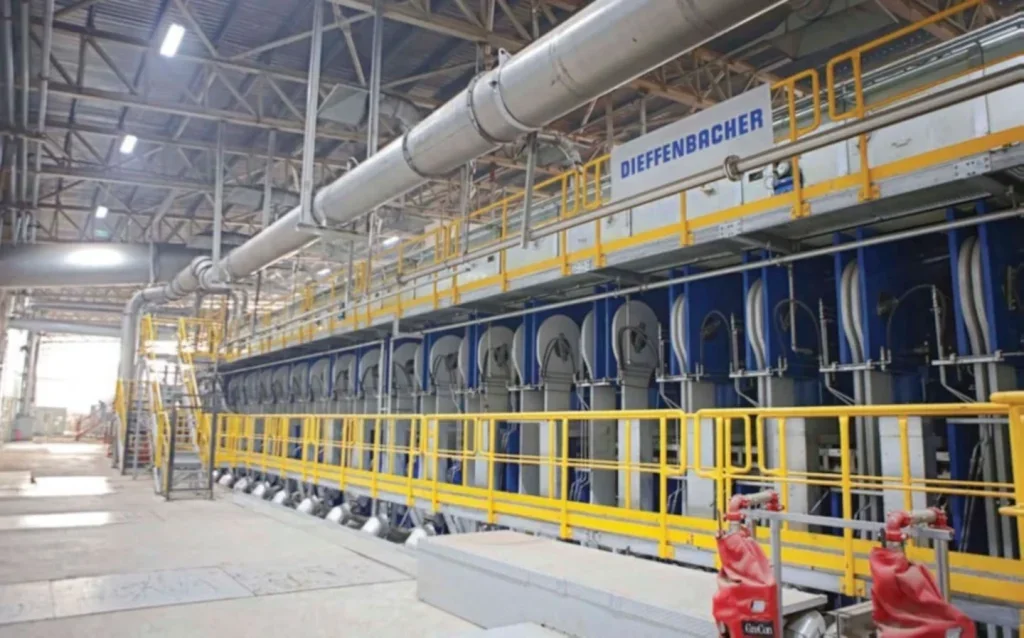
Fellow Turkish wood-based panels manufacturer Kastamonu Entegre (Istanbul) announced plans in 2021 to expand its Balikesir particleboard plant, located in western Turkey, by installing a new MDF/ HDF system with capacity of 500,000m3. The company ordered the relevant machinery via GIM Export Group GmbH & Co KG (Göttingen). The plant is now operational and has also been added to the main listing.
Deliveries from Siempelkamp included sifters, a forming and press line with a Generation 9 ContiRoll in 8ft x 63.7m dimensions, a cooling and stacking line, interim storage as well as a sanding line.
Other suppliers included Siempelkamp subsidiary Büttner (fibre dryer), Steinemann (12-head grinding machine), Andritz (disc chipper and the refiner).
Parallel to the new MDF/HDF plant, Kastamonu Entegre installed four short-cycle (SC) presses at its Balikesir facility. Two are second-hand plants (Wemhöner) from AZ MDF, while two are new plants (Wemhöner), which were being delivered to Turkey in the course of 2023. Within the scope of the overall project, Kastamonu also plans to establish impregnation capacities in Balikesir.
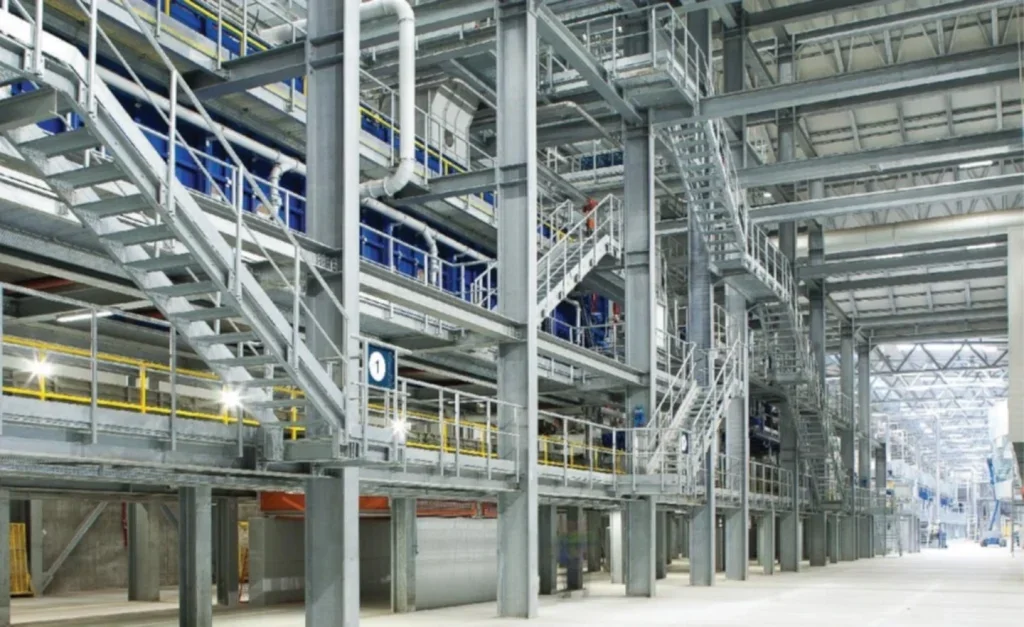
Next there is Germany’s Homanit, which has boosted its manufacturing presence in the Baltic states by investing in Lithuania. Homann Holzwerkstoffe, which already produced MDF successfully in Poland, has invested €115m in constructing a new thin HDF production facility in Lithuania and this facility, we understand became operational in 2023 with a capacity of 310,000m3. Accordingly, this plant is now added to the main listing.
The company has plants in Losheim am See, Germany (currently being modernised) and in the Polish cities of Karlino and Krosno Odrzańskie.
For its new site in Pagirai near the Lithuanian capital of Vilnius, the company installed a complete low-emissions THDF plant from Dieffenbacher. Dieffenbacher supplied all components, from debarking to stacking. The core of the plant features a state-of-the-art thin board forming and press line based on a CPS+ continuous press and a Dieffenbacher PROjet gluing system. Dieffenbacher is responsible for the automation of the new line.
The THDF plant is designed to keep emissions to a minimum while producing 1.5mm to 22mm-thick MDF. The new Lithuanian facility expands Homanit’s foothold in the three Baltic states, but also allows the manufacturer to export a larger share of the group’s production beyond Europe.
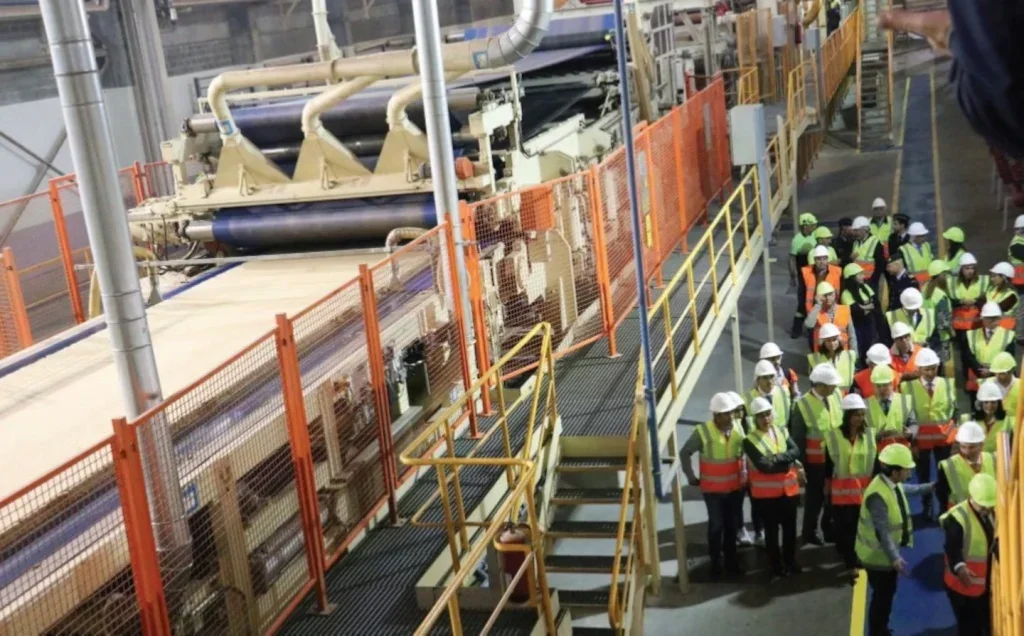
Homann Holzwerkstoffe GmbH also boosted its capacity by purchasing a stake in the Egyptian MDF manufacturer Nile Wood. The Nile Wood project is designed with a 200,000m³ per year capacity, which is expected to climb to around 400,000m³ per year when a second production line is added. In 2022, Homann inked a joint venture with Nile Wood’s parent Egypt Kuwait Holding (EKH). The deal saw Homann Holzwerkstoffe buy a qualified minority interest in the holding company Global MDF Industries BV, which in turn controls Nile Wood. According to EKH, Homann Holzwerkstoffe will have a 27% shareholding, which will be transferred in two instalments. Upon closing, 16.2% of the shares in Global MDF Industries will go to Homann Holzwerkstoffe. This stake will rise by another 10.8% once a new line currently being installed via Nile Wood in Sadat City starts operating.
The transaction also includes two wholly owned subsidiaries of Global MDF Industries, which will secure the supply of raw materials to Nile Wood’s MDF mill. One company manages short-rotation plantations for Sesbania timber, which is used to make MDF. According to a recent EKH investor presentation, the company had acquired almost 600ha of Sesbania plantations in a first step. The second Global MDF Industries subsidiary will provide adhesive resins.
Homann Holzwerkstoffe’s total MDF capacity increases to 975,000m³ as the mill in Lithuania goes into full production. Subsequent plans to replace the forming and press line in Losheim, Germany are expected to further increase capacity by possibly a further 90,000m3, subject to final confirmation.
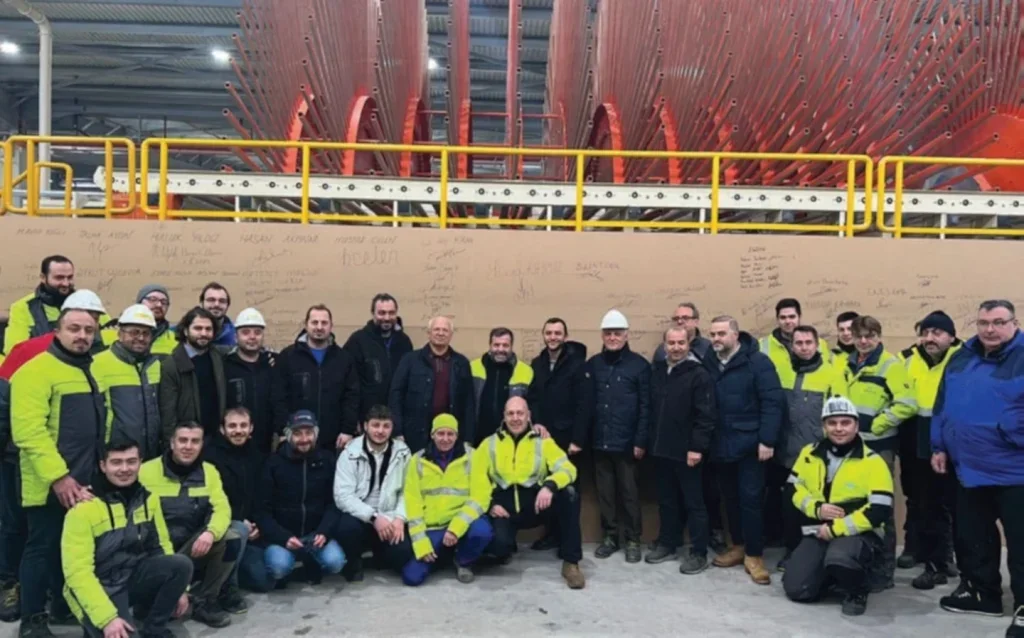
Italy continues to be caught up in the challenges caused by the long-term decline in furniture production locally, coupled with the construction sector’s reduction in activity. Bipan (Luigi Frati) and Plaxil (Fantoni) remain the two long-term domestic MDF brands and producers.
For some years, Fantoni’s has been a process to produce MDF utilising at least 50% post-consumer waste raw material and highlights ‘RECY’, its new wood cleaning plant for the production of recycled MDF panels. With ‘RECY’, the innovative wood recycling and cleaning plant, integrated into the Plaxil 8 production line, the Osoppobased company can continue on its pathway towards maximum levels of production sustainability.
The new system – which can fill the middle layer of the MDF panel with 50% recycled material – focuses once again on high technology and integrated automation to meet the challenges of Industry 4.0 with great verve.
The sophisticated technology used means the surface quality of the panel, in virgin wood fibre, remains unaltered, guaranteeing the same performance as traditional MDF.
Looking ahead, the trend in Italy and indeed Europe is towards utilising increasing percentages of recycled wood raw materials. It’s still in the early stages, but this is expected to grow.
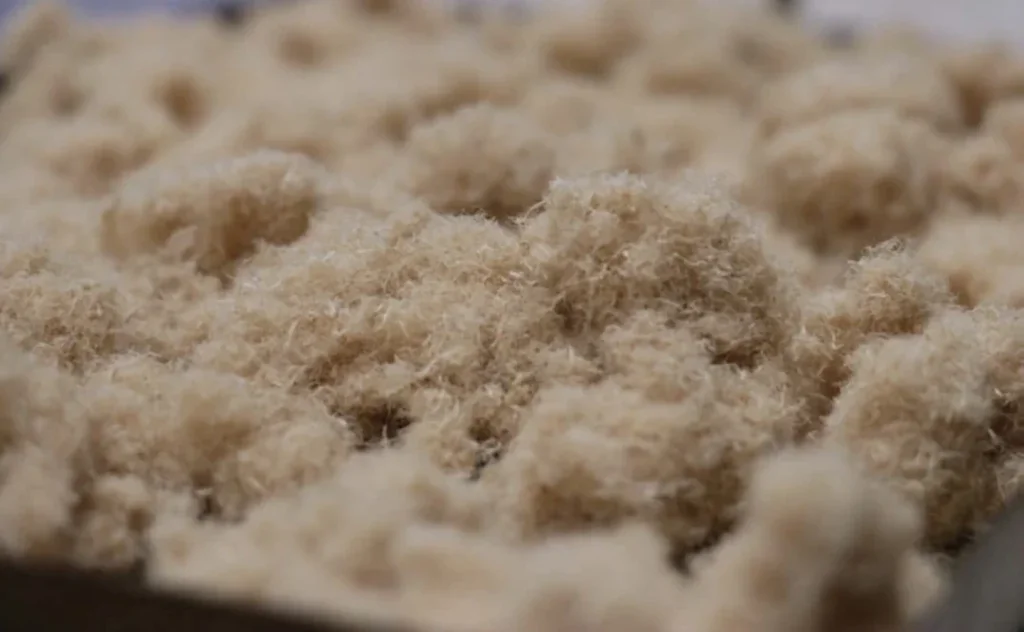
Weight issues also continue to dominate selection of materials. For certain components, MDF with a density of less than 500kg/m3, whilst maintaining high quality, is finding favour alongside higher density items of 700kg/m3+, for special use. Also, products produced as sandwich elements (core honeycomb with surface 2.5mm or less HDF) are helpful when weight issues need to be addressed in the final furniture product.
More broadly and in the short term, the Ukraine/ Russia conflict and inflation topics have dominated the last 12 months. During this period, it has been very hard to assure MDF production and that is why there have been calls by the European Panel Federation (EPF) for EU mitigation measures – specifically a secure gas supply; the cascade use of wood; the prioritisation of woodbased products in line with the Green Deal; and the reduction of regulatory burdens wherever possible.
Clouds on the horizon continue to include weaker consumer demand; supply chains remaining a challenge; and too many sectors looking at wood (with subsidies) as a way to decarbonise, leading to great concerns about wood availability for traditional materials, such as panels.
But looking ahead, EPF feels the most exciting issue for MDF is the use of recycled material in the product. In parallel to this is a major EU funded investment programme – EcoReFibre – which is specifically looking at how to replace up to 25% of MDF fibre with recycled material in the future (see pp26-29). EPF is a participant in this four-year project (which has completed the first 18 months) and is excited about its prospects.
Also to note, 2023 was the last full year of the 2019-2024 European Commission. This has been notable for the Green Deal, which brought both good and bad to the sector. The good was the prominence for carbon storing, bio-based products like panels. The bad was a lot of very challenging – and not always supported – legislation for industry. As EPF looks towards 2024-2029, it hopes for a continuation of the Green Deal, but adjusted so that industry might be a driver, not a victim of it.
Moving on, region by region, in France, we understand the MDF market and supply has been quite depressed and difficult, particularly in the trade related sector. It has been noted previously that the market for thin MDF was particularly strong, as vinyl flooring appears less accepted and HDFbased laminate flooring is apparently still coming back in force.
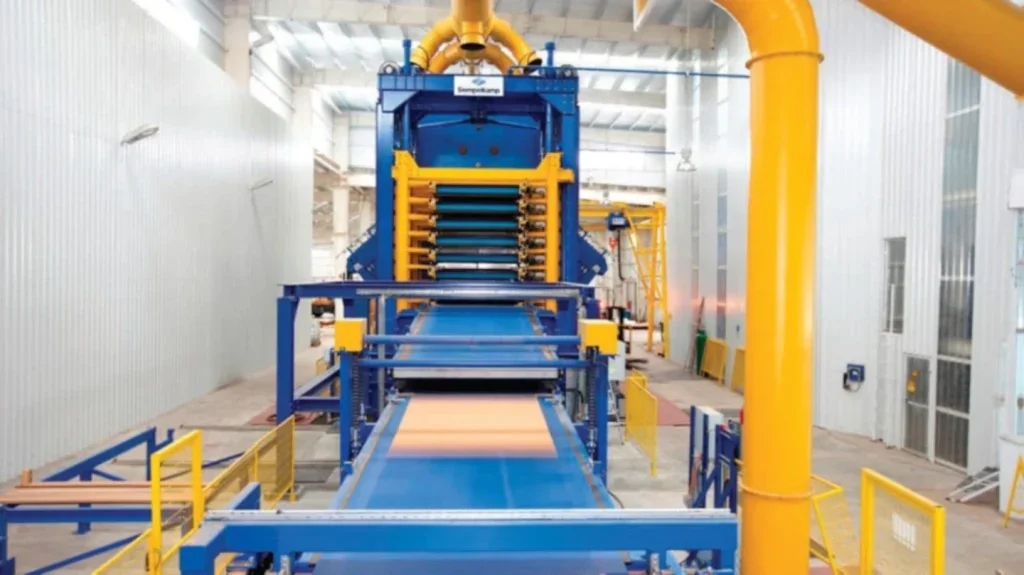
We reported last year that the previously privately-owned Panneaux de Corrèze was acquired by Unilin Group. This acquisition was part of Unilin Group’s strategic growth ambitions and will allow its Unilin Panels division to better serve the French market.
The facility produces approximately 150,000m3 of raw MDF panels with its production plant in Corrèze, in the centre of France. It has 110 employees. The company is well known for its excellent quality MDF panels, strong brands, and sustainability innovations.
The panel division of Unilin Group – Unilin Panels – is a European market leader and the company also operates two MDF/HDF lines in Bazeilles, northern France, with a combined annual capacity of about 700,000m³. Unilin Panels aims to achieve 25% growth by 2025 and be the market leader in Belgium, the Netherlands and France.
Thanks to its ‘Next’ range, Panneaux de Corrèze had a great deal of expertise on reducing the use of fossil raw materials to manufacture its panels. The company launched its ‘Next natural panel’ line using the Green Ultimate bio-based, formaldehyde and PMDI-free adhesive system developed by Evertree.
In contrast, the Finsa-owned Mediland MDF facility in Morcenx, south-west France closed three years ago. The mill, formally owned by Willamette industries and then Weyerhaeuser Co, was a part of Finsa France. The Morcenx facility has become a strategic distribution point in France for Finsa’s woodbased panel products coming from Spain.
The consequence of these recent developments means that Unilin Group is now the sole producer of MDF in France.
In Portugal and Spain, investment in new technology continues and Finsa has installed Dieffenbacher glue-saving technology in two production lines in Nelas, Portugal.
The two PROjet systems will help reduce glue consumption in MDF production. Another PROjet and an EVOjet P will be used in a line that produces boards with a particleboard core layer covered top and bottom by MDF surface layers. The PROjet will be used in surface-layer gluing, whereas the EVOjet P will be deployed for the core layer.
In recent years Kronospan has emerged as a powerful player in the Iberian Peninsula and it now competes seriously, with the long established and locally based groups. One of the company’s goals remains to increase its market share in Spain and Portugal by 20-30% whilst still consolidating its export markets.
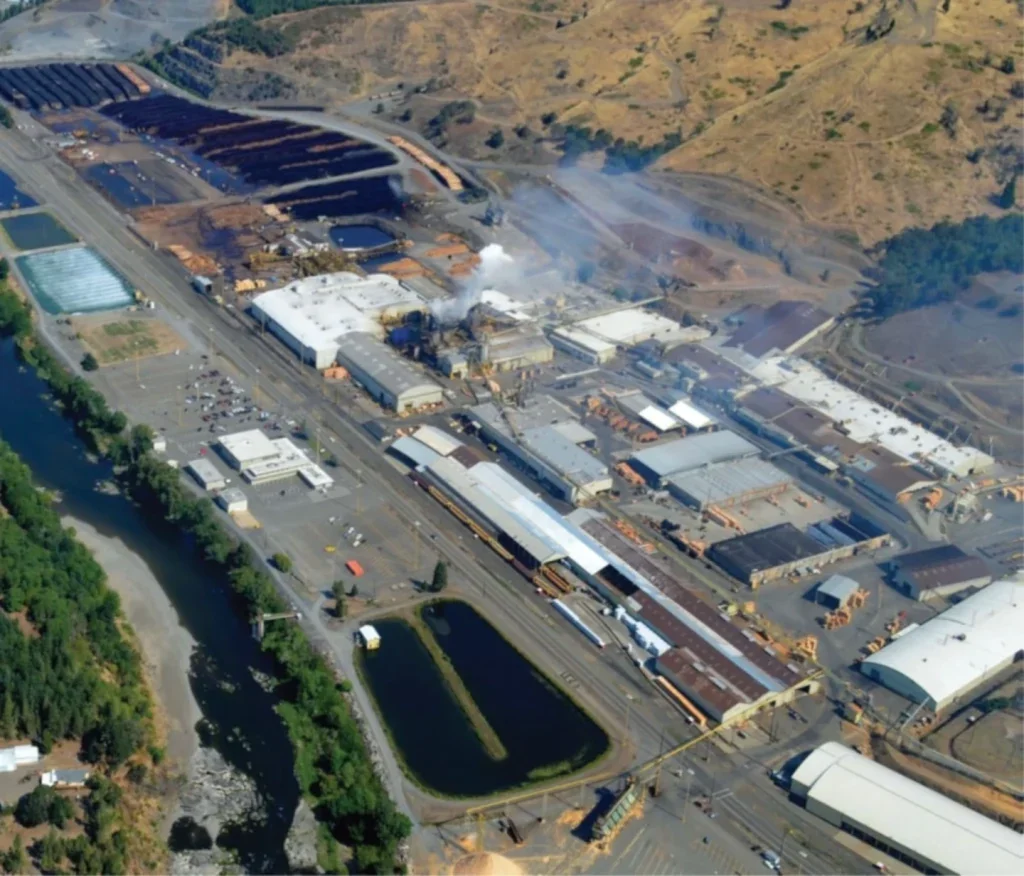
Kronospan may well continue to set itself apart from the rest of the industry by building new sites in eastern and southern Europe, expanding several central European locations, and carrying out more acquisitions.
In the UK, Ireland, Germany, and the Benelux countries there has been growing interest in moisture resistant (MR) boards. Some users are also looking for enhanced quality and the market saw the launch of MEDITE OPTIMA, a higher density board with greater machinability than standard MR. There is also increased interest in primed MDF, with over half of MDF in Europe already being coated in one way or another. It is anticipated that the market will see this grow even further.
The interest and visibility of bio-resin panels is clearly growing in Europe, especially in the Benelux countries. EU regulations on formaldehyde levels have raised interest from customers about the resins used in MDF manufacturing and this has led to the growing research and commercial interest in bio-resins.
Two MDF producers have launched biobased MDF panels into this market in the last 12 months.
Sustainability continues to be a key interest in the European market, both from a carbon and forestry point of view. The impending EUDR regulatory changes will only heighten this and customers / users are becoming more vigilant than ever as to the credentials of the product they are sourcing.
In the UK and Ireland there were no new capacity investments or change from the three main MDF players – West Fraser, Kronospan and MEDITE (Coillte) and all had relatively strong order books in 2023.
We can also report that construction of the Tricoya wood elements plant in Hull in the UK remains on hold. The plant is designed to acetylate wood fibres that will be used by MEDITE and FINSA to make Tricoya modified MDF wood panels. Accsys is committed to coming to a resolution with respect to the future of its Tricoya plant in Hull in the first half of the financial year 2025.
In the Nordic region (Sweden, Norway, Denmark, Finland) there are no production facilities for MDF, but the influence of Swedish furniture group IKEA, in terms of global design trends in the competitively priced self-assembly sector, remains significant.
IKEA continues to state it will use more recycled wood in MDF manufacturing as well as promoting the introduction of fossil-free binders.
This development is focused on particleboard, with a smaller number of initiatives in the fibreboard arena currently.
The issue of recycling MDF at the end of its use remains an important topic of research in Scandinavia and elsewhere and the wood sector will benefit commercially and technically from new recycling methodology, currently being developed and seen in other industries. Several different technologies have been developed, including by MDF Recovery Ltd, which recently signed an agreement with leading recycling technology supplier PAL.
In Belarus, the 224,000m3 capacity Kronospan MDF facility at Smarhoń has been sold and is now being operated there by Emirati Causa Foundation with funding from Qatar and UAE. As a result, the Austrian woodworking holding company Kronospan has closed its business in Belarus and its factories and logistics centres are now owned by the Emirati Causa Foundation. The supervision activities were handed over to Russian managers.
The legal entities that owned Kronospan enterprises in Belarus have completed the rebranding. The factories in Smarhoń are now managed by the companies Ultradecor, Ultradecor Properties and Ultradecor NT.
It has been reported elsewhere that other Kronospan assets it had in the Russian Federation were also transferred to the same fund, registered in the United Arab Emirates.
Also in Russia, the Sheksninsky plant in Vologda has plans to increase combined production of MDF and particleboard, which is estimated at close to 1 million m3 in total, by 30-40% in the coming years, but we currently have no updated news on this.
The MDF/HDF investment at Vladimir – capacity 424,000m3 – by the Turkish wood-based panel and laminate flooring manufacturer Yildiz Entegre, is hoping to be operational later in 2024 and we will report on this further in due course.
Taking our main table listing from 2022, which shows an adjusted total installed capacity of 30,021,000m3m3, and then finetuning information with adjustments and corrections and with new capacity already installed in 2023, we reach an estimated total of 31,575,000m3. Then, with the future new mills listed in Table 1 European capacity development, we now have a forecast figure of 32,449,000m3 as the total European capacity for 2024 and beyond.
NORTH AMERICA CAPACITY
The MDF situation in North America is currently not very dynamic. After a strong demand and rapid price escalation in 2022, mainly created by a pandemic hangover and the shutdown of two Arauco mills, demand has fallen in conjunction with new construction and repair and remodelling.
MDF demand has been poor and shows little sign of improving in 2024. Any shortfall in supply has been of short duration and usually filled by imports. Imports are becoming more of a factor, especially in the US, encouraged by a relatively strong currency exchange against supplier currencies in Asia, South America, Mexico, and New Zealand. Vietnam is becoming a larger factor on the west coast.
Prices in 2023 fell off 2022 highs and are expected to continue a decline during most of 2024-2025 but remain considerably above pre-pandemic levels. Other than the new MDF plant announced by Roseburg to be built in Dillard, Oregon, we know of no other plans for new MDF capacity in North America.
Housing is showing some life, especially in multi-family dwellings, but affordability and high interest rates are keeping a damper on things. Housing prices are falling in many markets, mainly the same ones where prices escalated the most during the upswing. Lower prices are helping affordability, even with higher interest rates.
Naturally the most exciting news to report is that Roseburg Forest Products announced on April 14, 2023, that it plans to invest US$700m over the next four years to upgrade and expand its manufacturing operations in southern Oregon, where the company was founded nearly 90 years ago.
The investment includes the creation of two new, state-of-the-art manufacturing plants at the company’s Dillard complex, as well as technological improvements and upgrades at existing plants in rural Douglas and Coos counties.
Dillard MDF will use wood residuals from Roseburg’s local mills as well as other regional mill suppliers to manufacture standard MDF, as well as thin HDF – often used in cabinetry, doors, and other applications. The plant will produce panels with a thickness range from 2mm to 28mm.
“HDF is a new product for Roseburg that meets growing customer demand for domestically manufactured panels of increasing thinness and strength,” said CEO Grady Mulbery.
“Dillard MDF will be one of the most technologically advanced plants of its kind in the world, and it alone represents US$450m of our US$700m investment.”
Dillard Components will convert specialty MDF panels manufactured at Roseburg’s MDF plant in Medford, into Armorite Trim, a finished exterior trim product for residential and shed use. Roseburg will invest approximately US$50m in this plant.
The two plants together will be capable of producing 310,000m3 of MDF per year – 124,000m3 of primed Armorite and 90 million ft of interior mouldings.
The company anticipates that both new plants will begin operations in 2025 and will employ approximately 120 people once completed.
“Not only are we proud of our long history in this region, but our focus on advanced manufacturing and innovative technology makes us an excellent fit for the future,” said Grady Mulbery.
The MEDITE MDF mill in Medford, Oregon has operated well in 2023 under the ownership of Roseburg. The plant is a wellrun facility, and the acquisition represented a key strategic move for Roseburg in its evolving composite panel business, ahead of the Pembroke, Canada purchase and then the Potlach Deltic Corp, 265,000m3 MDF mill at El Dorado, Arkansas.
Roseburg announced that Grady Mulbery retired from his position as president and chief executive officer, effective September 30, 2023. As part of this planned leadership succession, Roseburg’s board of directors unanimously elected chief operating officer Stuart Gray to succeed him as president and CEO, effective October 1, 2023.
Whilst not MDF as such, it is appropriate to report that the US door manufacturer Steves & Sons Inc placed an order for two Siempelkamp forming and press lines for the production of door skins.
The Texan customer also placed an order with Siempelkamp subsidiary Büttner for two fibre dryers and an energy plant. Steves & Sons, a family-owned company, is entering the door skins manufacturing business with this project.
The two press lines each consist of a fibre classifier, mat forming, forming line and the multi-daylight press yielding millions of door skins per year. For the press line design, the focus was specifically on the wide product variety, combined with the minimisation of trim waste. Commissioning and start-up is scheduled for 2024.
The investment project by Swiss Krono for the HDF / MDF plant at its facility in South Carolina has continued to progress successfully and is running well. The plant at the Barnwell site has been expanded extensively to strengthen the HDF and laminate divisions throughout the Group. The plant has a production capacity of around 280,000m3 of HDF, which is intended primarily for laminate flooring production in the company’s own plant.
There are rumours that Kronospan may build a PB and/or MDF plant in Texas, but nothing firm to date and as previously mentioned, Cal Plant 1 in California has been removed from the main listing.
Meanwhile, in Canada the Great Plains wheat straw-based MDF project moves forward slowly in Alberta. Back in 2021, Great Plains MDF announced it had selected a site for its greenfield wheat straw-based MDF plant and has added two industry veterans in Lanny Hammock as vicepresident, sales and marketing and Wade Gregory as vice-president operations to its team and has now also formed an alliance with a major construction firm.
The plant, with a design capacity of 849,000m3, is planned to be built in Kneehill County in Alberta, Canada. As a latest update (April-May 2024) the company said that the financing process has taken much longer than anticipated. It still appears positive and could finalise within the next two to three months, but nothing is for sure until it happens. Once financing is secured, the engineering, equipment purchasing, and construction phases will begin, but we are still three years away from start up, at best.
The Great Plains development plan will see Great Plains pursuing permits with all the appropriate regulators (Government of Alberta, local municipality). Great Plains Innovations is the parent company of Great Plains MDF. It intends to build a series of similar facilities across the Canadian prairies and elsewhere over the next 10 years.
MEXICO
In Mexico, we see the three projects that we highlighted previously progressing well, with all of them being fully operational. Total nominal production capacity of the MDF plants in Mexico has been adjusted to 792,000m3/year, such a significant volume when compared to the small capacity of less than 80,000m3 only a few years ago.
Celulosa Arauco y Constitución plans to double the MDF/HDF capacities of Arauco Industria de México by installing a production line at the Mexican site in Zitácuaro (Michoacán). The company plans to invest around US$200m in the project. With production expected to commence during 2024-25, depending on the progress of the approval procedures still required, this will ultimately add 300,000m3 to the facility. The plant will employ 220 people during its operation and its supply seeks to promote a circular economy model, empowering small local forest producers and safeguarding the ecosystem values of their surroundings.
To date, Arauco México has produced raw and coated PB at the Zitácuaro site.
Following the takeover, the production capacity of the two sites was indicated at 339,000m³ particleboard and 220,000m³ MDF/HDF.
The MDF/HDF facility in Durango, supplied by Dieffenbacher, has been operational since the first quarter of 2016.
The main incentive for the companies, that together have invested more than US$400m so far in state-of-the-art manufacturing facilities, is the very promising outlook in the Mexican market.
No continuous process plants existed in Mexico a short while ago and per capita consumption remained very low compared to most countries. Also, the Mexican furniture industry has been characterised by a comparatively high use of solid wood and plywood in relation to particleboard and MDF. Therefore, the perceived opportunities towards the continual future increase of MDF in the Mexican furniture manufacturing industry remain extremely positive.
Mexican wood panel producers are still driving several market development initiatives, which are gaining momentum and are at the forefront of a campaign to promote wider use, particularly of MDF, by the national furniture industry. The panel makers are continually educating Mexico’s furniture designers (both current ones and young students) and manufacturers in the potential and versatility of working with MDF which, with its workability, is a natural substitute for traditional solid wood.
So, total North American installed MDF capacity for 2022 was shown as at 5,818,000m3 and for 2023 has now been readjusted down for Canada, Mexico, and the US as approximately 5,583,000m3.
But now, with the newly planned Mexican capacity, along with the futuristic and large Canadian wheat straw-based MDF project and the new US investment announced by Roseburg, our table showing forecast future capacity gives a figure of 7,042,000m3 for the North American area for 2024 and beyond.
HOW THE LISTING WAS COMPILED
The WBPI listings published in 2023 were reviewed, and modifications made, using other published sources and data received directly from the mills and industry experts. Published information was reviewed for news of capacity changes. These sources include relevant trade magazines, association reports, press releases and equipment suppliers’ reference lists.
Self-completion enquiry forms were distributed to the mills, requesting current and future capacity data.
The mills own reported design capacities are used wherever possible because this is the basis upon which they can make their estimates of future capacity and production changes. Where this information is not available, published sources are used, usually on a basis of 330 operating days per year.
Conversion of ft2 to m3/year is made with 1,000ft2 equal to 1.77m3.
In September 2011, Geoff Rhodes established GRA as a specialist forest products and international trade consultancy, providing independent in-depth assessment of markets and market potential for wood-based panel products. Geoff is well known for his pioneering work over many years driving the introduction and huge expansion in the use of MDF in the UK and international markets. He is a former President of the Timber Trade Federation (TTF), the European Association of MDF Manufacturers (EMB) and the Fibre Building Board Federation (FIDOR) and a former Board Member of the European Panel Federation (EPF). He is also a Fellow of the Institute of Materials, Minerals and Mining and since 2016, has been President of The Institute of Carpenters. In 2017 he was the recipient of the TTJ’s Lifetime Achievement Award for services to the timber industry.. geoffrhodes.associates@gmail.com






